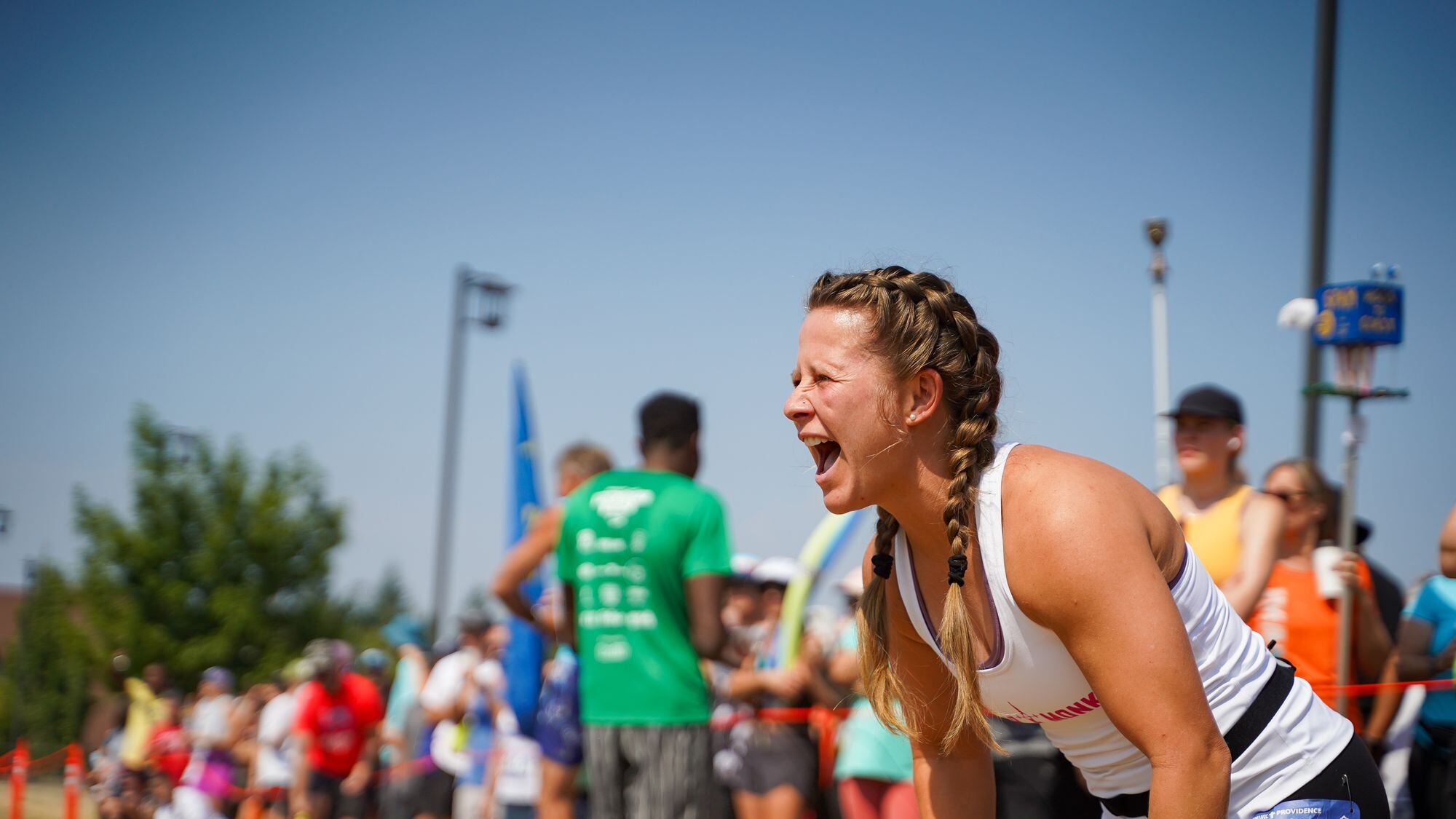Triple-digit heat will descend on the Portland area Friday and into the weekend, posing health risks and straining the power grid.
Officials say temperatures, expected to eclipse 100 degrees, will be more severe than anything yet this summer.
Older and pregnant adults face added health risks in extreme heat events—especially those who live alone. But officials say everyone should take care, especially given that this weekend is set to feature several outdoor events, like the Hawthorne Street Fair and the Hood to Coast Relay race.
“A lot of us maybe don’t think of ourselves as vulnerable to heat,” said Brendon Haggerty, a Multnomah County Health Department official, at a press conference today at the Albina Library. “But in an event like this where it stays hot at night and lasts for days and days, that’s when all of us can start to have real vulnerability to heat illness, and even death.”
Addressing people planning to be active this weekend, and Hood to Coast Relay race participants in particular, he said, “Heat stroke is a life-threatening emergency that requires immediate medical attention.”
Multnomah County says it will open cooling centers Friday and Saturday from noon to 9 p.m.—one at Multnomah County East (600 N.E. 8th St., Gresham) and another at Stephen’s Shelter (1432 S.W. 13th Ave., Portland).
To offer respite from the heat, three county libraries will stay open until 8 p.m. Friday, two hours longer than their usual schedule, the county said. These are the Central Library, the Gresham Library and the Midland Library.
From 11 a.m. to 10 p.m. Friday and Saturday, TriMet says it won’t turn away anyone who is going to a cooling space and who cannot otherwise pay their fare.
The National Weather Service’s extreme heat warning is in effect from midday Friday through the weekend.
Affected areas include the Portland metro area, Central and Southern Willamette Valley, Greater Vancouver Metro, Lower Columbia and Cowlitz River Valleys, Portland Metro Hills, Tualatin Valley, West Columbia River Gorge above 500 feet, and the Clackamas County Cascade Foothills.
Heat waves are getting more common. 2024 was the warmest year on record, according to the National Oceanic and Atmospheric Administration. 2023 was previously the warmest year on record. The planet’s 10 warmest years since 1850 have all occurred in the past decade.
State officials asked Oregonians this weekend to reduce energy use and avoid running major appliances during the morning and evening—peak energy hours. To stay cool and safe, officials advise that people:
- Drink water regularly and avoid sugary or alcoholic beverages.
- Wear lightweight, breathable clothing.
- Take cool showers or spend time in air-conditioned environments.
- Keep windows closed during the day and open at night if air quality allows.
- Never leave children, adults, or pets in parked vehicles.
- Limit physical activity during peak heat hours.
Signs of heat illness include nausea, dizziness, hot skin, and a high body temperature. In the event of heat stroke, characterized by, among other things, confusion and rapid breathing, the state advises to call 911 immediately, move the person to a cooler place, and lower their body temperature with cool cloths or a cool bath.
On a typical summer day, zero to one person comes to emergency departments or urgent care clinics in Multnomah County with a complaint of a heat illness, Haggerty says. When temperatures reached into the 90s early this month, there were 34 such medical visits in a four-day span. He noted many more people were likely suffering but didn’t go to the doctor. (The medical examiner suspects two people may have died from the heat in that period.)
Those recreating or working outside are among the vulnerable to heat-related illness, officials say. In Oregon, outdoor workers are legally entitled to shade, breaks and water. Other vulnerable groups include infants, people who are pregnant or have chronic medical conditions—and especially older adults who live alone and don’t have air conditioning.
“It’s a great time to check on neighbors,” Haggerty says. “And even to do more than that. Stop by with a cool drink. Invite them over for a movie night if you have air conditioning in your home, or suggest a cool place that’s safe to go get respite from the heat.”

